 |
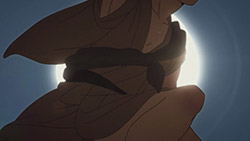 |
 |
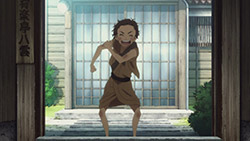 |
 |
 |
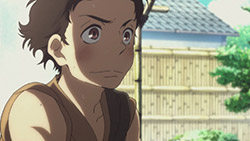 |
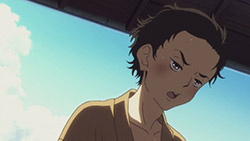 |
 |
 |
 |
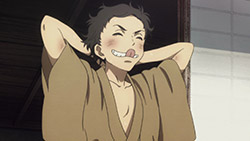 |
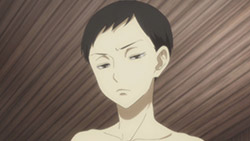 |
 |
 |
 |
 |
 |
 |
 |
 |
 |
 |
 |
 |
 |
 |
 |
 |
 |
 |
 |
 |
 |
 |
 |
「#2」An Observation – Similarities in Greatness: I think it’s fair to say that the two top-quality anime of this new season are Boku Dake ga Inai Machi and Shouwa Genroku Rakugo Shinjuu. Both are mature stories aimed at adults that managed to set themselves apart from one another in their premieres; Boku Machi hooks you in with its suspense and that cliffhanger ending, whilst Rakugo Shinjuu transports you to the world of traditional Japanese storytelling with a polished double-length episode. I still stand by my initial impressions that last week’s Shouwa Genroku Rakugo Shinjuu episode was one of the best premieres I’ve ever watched. But Boku Dake ga Inai Machi’s was also sheer brilliance, to the point where I can’t remember a season with two openers as strong as these ones. Even if the rest of the shows currently airing end up as disappointments (which I don’t personally believe), these two are more than enough to carry us through these winter months. Funnily enough, after thinking these two anime were massively different in their premieres, their second episodes ended up remarkably similar. Both are much slower-paced compared to their openers, both take us into the past of our characters’ lives, both are now telling the stories of characters that are dead in the present, both are strikingly cinematic in their aesthetic, and both are told with absolute confidence. And while I think most people will prefer the aftermath of Boku Machi’s shocking cliffhanger, my heart still lies with Rakugo Shinjuu’s blast from the past, as we learn about the younger years of Yakumo and Sukeroku. A Step Into the Past – Polar Opposites: It appears we’re now going to focus on this flashback for the time being, which I was expecting and anticipating. The links between the past and present were evident in the previous episode, so it’s a great thing that we’re spending some time with our rakugo masters in their youth. What stood out to me in the first few minutes was that Yakumo’s leg was already damaged from such a young age – having danced up until now, he was essentially abandoned by his family and sent to learn about rakugo after an accident that meant he’s now unable to walk without a cane. It’s those little extra tidbits that elevate the characterisation we’re getting here, made even better when Yakumo lets the tears pour when he’s reminded of losing his family. It must be difficult to be pushed into a field that he has no experience or interest in, and has to get past his depression and learn how to smile. In contrast, Sukeroku (Yamadera Kouichi) is just about the opposite in every possible way. Where Yakumo is clean and well-mannered, Sukeroku is a dirty common boy with a brash attitude. Yakumo is introverted and quiet, Sukeroku is extraverted and doesn’t think before he speaks. One studies hard even when he doesn’t particularly care for the art of rakugo, whereas the other stays out late at night but manages to pull through with his ‘gift of the gab’, as we say over here. Whereas Yakumo has to break every one of his habits to deliver his stories, it comes naturally to Sukeroku, who has lived and breathed rakugo since a young age. With nowhere to go after the death of the old man who took care of him (and not having any real parents), he comes to the current rakugo master in a way that resembles Yakumo and Yotarou’s first encounter in last week’s premiere. Now we are seeing why he took him in – to Yakumo, Yotarou must feel like the second coming of his closest friend. The Key to Successful Storytelling: It’s a bold move to purposefully make the audience feel uncomfortable, disappointed, and perhaps even bored for a good chunk this episode. When Yakumo stepped out on stage for his debut rakugo show, you could feel how nervous he was. In that moment I forgot that this is the current master who now delivers seamless performances, weaving the snores of his apprentice into his performance with ease. Here, however, the teenage Yakumo is dripping with sweat, his hands are clasped together, and it feels like the stage is going to swallow him up. Anyone who has had a run-in with public speaking knows how nerve-wracking it can be, and that was captured brilliantly during his performance. If you felt yourself drifting off during in those minutes, that’s because you were meant to feel that way – right up until the music swelled and grew in volume until we could not longer hear Yakumo’s feeble attempt at comedy. It was painful to watch and relieving to see it end, directed with such assurance that I can honestly say boredom has never been so brilliant. Again, to compare opposites, Sukeroku commands the stage. From the moment he steps on it he shows no sign of anxiety, going so far as to wake up the audience by screaming out and beginning his story. From there, everything just clicks. We, the audience, are engaged just as much as those watching him in-person. He delivers his story with confidence, his jokes landed when they were supposed to, proving that the key to successful rakugo storytelling is a smile. He walked on with a smile, spoke with one, and left with one – his energy is contagious and that comes across onscreen, and it’s easy to see why Yakumo smiled not once, but twice when watching him perform. Just like Rakugo Shinjuu had us in the palm of its hand during these two performances, Sukeroku had his personal audience in the palms of his own. Overview – What’s Next?: I expect those who were on the fence with last week’s premiere – who found it boring or too slow for their tastes – will probably jump off after this episode. And while it’s a shame that this will likely become an under-appreciated gem, it is a gem nonetheless, and those who stick around are surely in for a treat. While I definitely missed Yotarou and Konatsu, it feels vital that we stay in the past for the time being. This week showed the beginning years of Yakumo and Sukeroku’s relationship, but I suspect next episode will focus on them in their twenties, introduce Konatsu’s mother, and perhaps explain what caused the legendary Sukeroku’s death, and if that was the reason that spurred Yakumo on to take rakugo seriously and become as good as he is in the present time. Also, it’s a bummer that we still haven’t got the OP yet, but I suspect that will come next week. The ED, however, was beautiful. It’s a simple song, but the accompanied colourful visuals and panning frames really help set the perfect tone. Full-length images: 13, 21, 22.
ED2 Sequence
ED2: 「かは、たれどき」 (Kaha, Taredoki) by Shibue Kana Preview
|










Dang! Two episodes in and it still has its cinematic quality. My only quip is it only ran for 24 minutes. I want more. This is probably the most evenly paced and the best one in terms of character development I am watching this season.
Yes. I also felt dread when the young Yakumo performed his first rakugo. Some nice choice of soundtrack here which enveloped the audience to anxiety and the ‘just end it!’ feeling. I hope we get a continuation of this next episode (Although I really want to see Yotaro so soon, I mean, he’s just that adorable).
Some of my analysis: I think the master felt uncomfortable with Yotaro’s rakugo in the first episode because it reminded him of Sukeroku’s performance. Look at that so idiotic it’s cute face and his rakugo. I was also reminded of Shinsekai Yori because of the pacing and its absence of OP (so far.)
Agreed, If I had one complaint it would be that every episode isn’t 48 minutes long. And I kind of wish this was already complete so I could marathon it in one go… the weekly wait is going to be so painful :<
Well, and here I was thinking I was the only want that wanted a double length episode. Man, this anime is amazing.
I think a lot of people were expecting more double episodes. Ah well, we can’t get everything we want!
I was also a little disappointed at the lack of OP too, just because it’s so jazzy and catchy (the MV is out though), although I guess it would’ve distracted from the opening scene a bit. The lighting and facial expressions were top quality again though, and I really like how they’re using the OST so sparingly and like you pointed out, how it drowned Kikihiko’s voice out.
I LOVE the OP song so I can’t wait to see the visuals for it. As for the lightning, much like last week it was smartly used and every shot was so well composed, especially during Sukeroku’s performance which felt much more lively and dynamic compared to the static shots of during Yakumo’s rakugo. The directing/storyboarding is so strong here, I could gush about it for hours.
I like stories that leave the viewer reading between the lines and understanding a cultural art that someone from not Japan would probably not have an interest in, with that said, I don’t think the newer generation probably has the same interest in an older form of art. I am given the impression that this is like a Japanese opera in a sense, with the setting, the audience and the theatre. Somehow I’m also reminded of Chihayafuru’s ‘Karuta’ and how often others in the school had no interest in the Karuta Club.
Ty for your review, it does it just. I love the fact that we are taken back to the start and I think I have a thing for older men *cough* Yakumo. The crying was unexpected, when he still had a straight face when he’s crying.
Cheers, M
Note: if u watched gintama then there’s something strange when ur listening to katsura and sarutobi talking seriously xD
I think a lot of people are hearing Katsura’s voice whenever Takumo talks, for better or worse~
I could care less about OP or ED if we get more of the brilliant storytelling. I mean, those rakugos sure eats up a lot of the time.
“The key to successful storytelling is to deliver your words with a smile”
Behold, pathetic proles, the ancient animufag wisdom of countless weeaboo ages.
Never change, randomc.
The VA is brilliant, and the music also… that ED.
Beautiful. I am enjoying this season.
I am loving this and Boku dake ga inai machi, and being excited for two series in a season is really good.
Or perhaps it’s because of the drought of the previous season…
The voice acting is brilliant across the board so far. A show like this allows them to show off their talent to its truest potential. It’s going to be fun seeing them telling all sorts of stories, especially as the characters themselves get better at it.
Pretentious, ‘deep’ oscar-bait of an anime. It’s great that Enzo is not here to praise it to death and claim it’s a ‘gift to the anime world’ like what he did to Mushishit.
Trolling Bait: The Post
Wait? This one’s pretentious and deep?!! Eh? LOOOL. Go home, you are drunk troll.
The direction is this series is excellent. Not once did I feel bored. No time is wasted on pointless stuff.